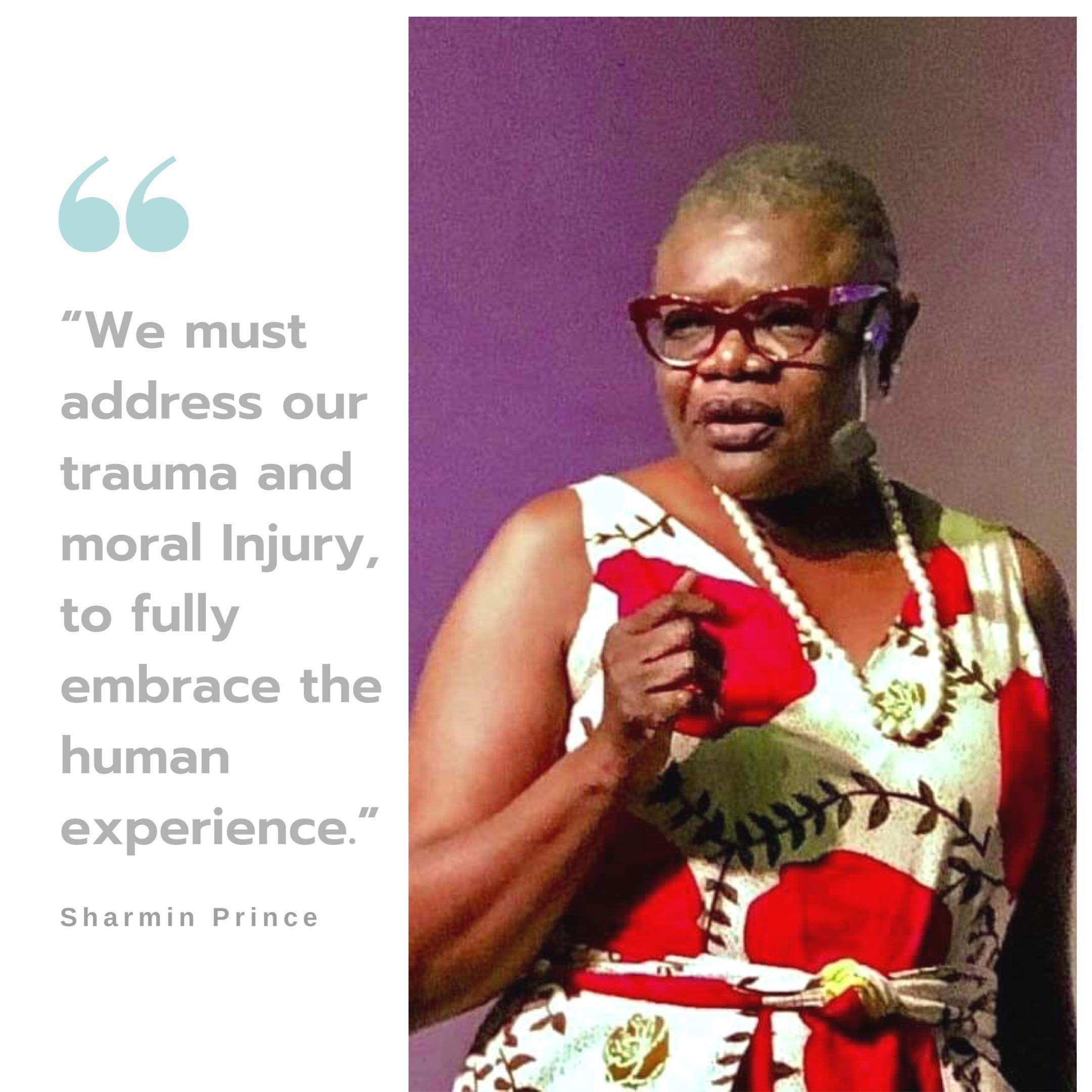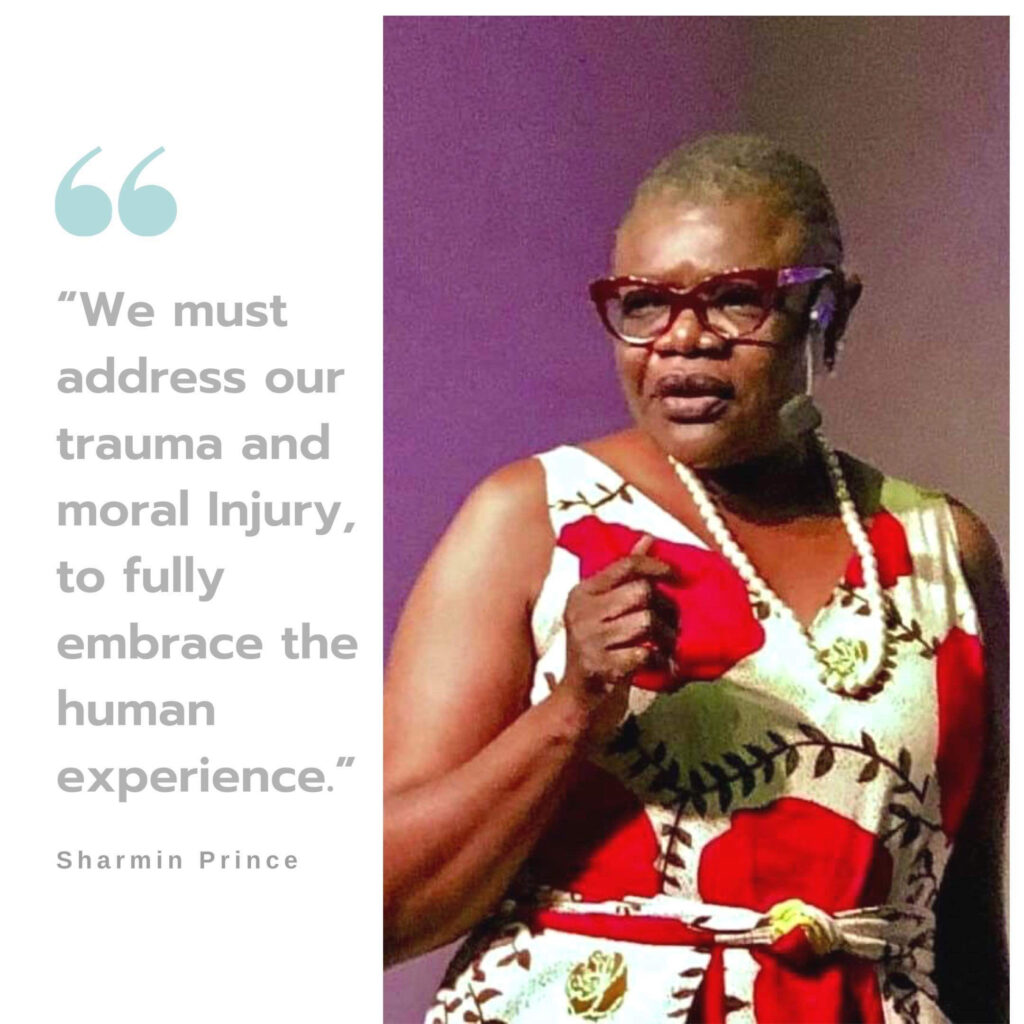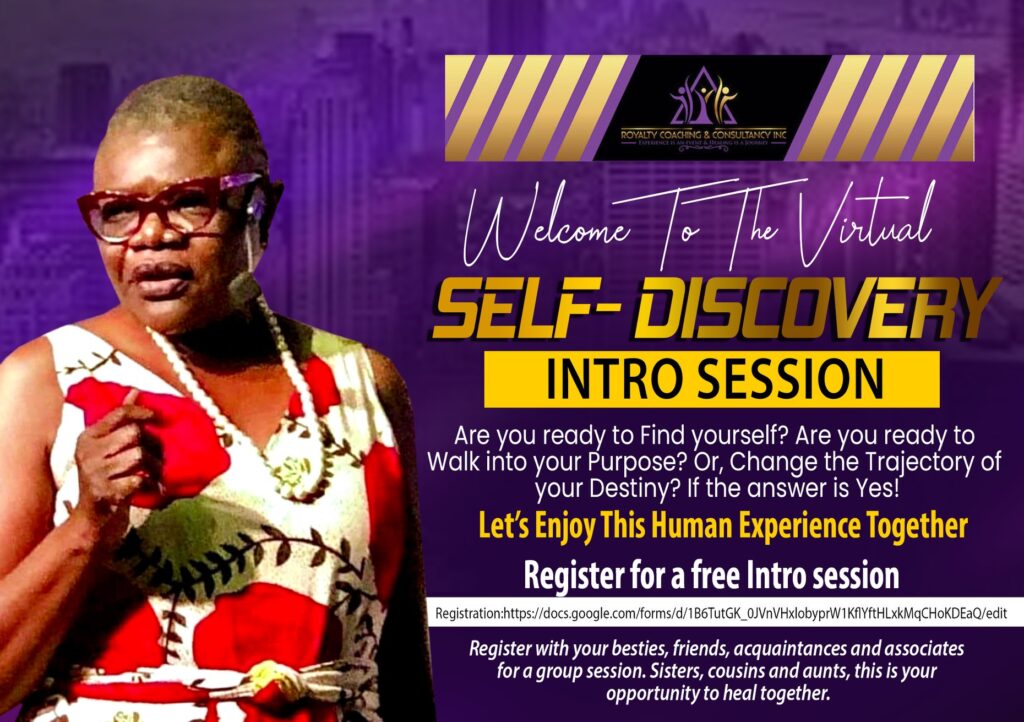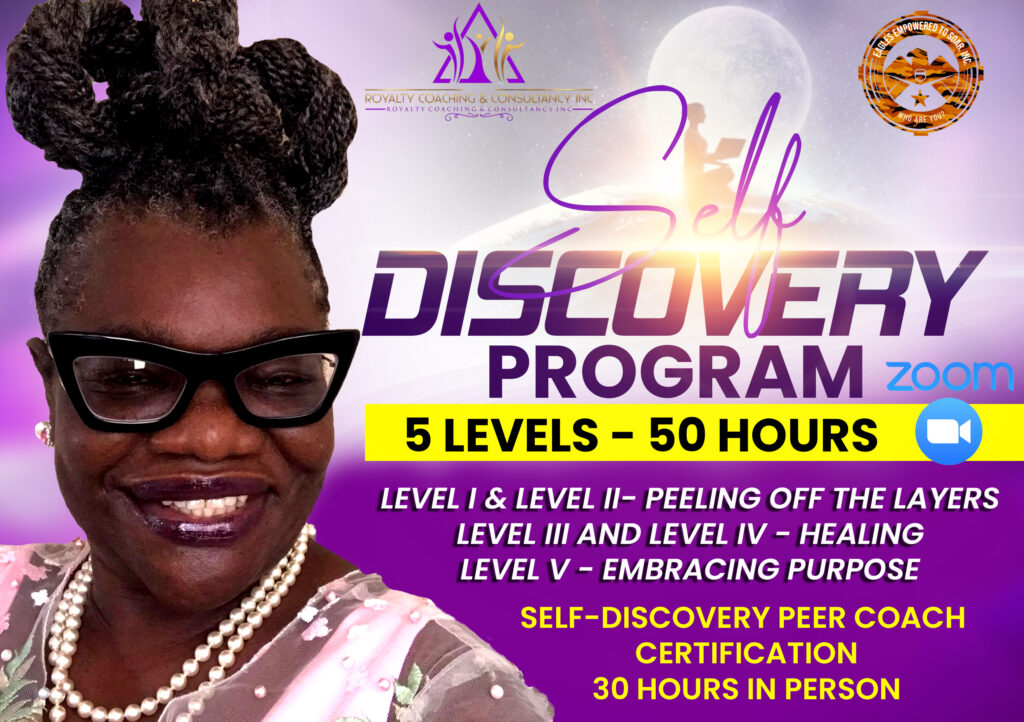FWM: You have spent 19 years serving the most vulnerable populations in NewYork City. Where did your passion for helping others begin?
My passion for helping others came directly from my mother, who was a single parent after the death of my youngest sister’s father. While he was alive, many times I woke up to strangers who had nowhere to sleep, sleeping on the floor of our already overcrowded house. As a single parent my mother always insisted that we share what we had and that was not much. Despite where we lived, there was always someone to partake in the limited food we had. However, I believe my greatest example was while my mother worked at the children’s ward at the city public hospital.
The school I attended was four blocks away from the hospital, and I frequently visited my mother at her place of work. There was an Amerindian girl (Native Indian) girl who was living in the children’s ward for a long period, who had a skin disorder and an oversized pair of ears. I literally remembered citizens visiting the hospital just to see her and the other children who were born with rare physical deformities. However, Nanda would retreat to a dark spot in the back of the ward during visiting hours, she covered herself with dark materials armed with objects to ward off those who relentlessly taunted her. She did not want to be a public spectacle and she hid herself three times daily. I was a child and knew it was wrong, but I could not help her because none of the adult staff on duty was doing so. However, she knew my arrival times before visiting hours, and she sat at a window, and when she saw me skipping, walking, or hopping around the building her cadence was “Chow-min (what she called me) com-ing, Chow-min com-ing.” I would always take time out to speak to her because she told me I was her only friend. Also, during my primary and secondary socialization processes, I witnessed many social, political and ethnic injustices, family violence, and abuse.
FWM: What is your belief in human capital?
To answer this question, I have to provide a foundational background. I became a supervisor eleven months after entering the social survival field. My supervisor was complaining about her frustration with the agency, job, salary and as I think of it, she was burnt out. I remembered the army psychologist I saw in AIT, loaned me a book Who Moved My Cheese. and upon being discharged, I bought my copy and loaned it to her. Approximately, two months later, she notified me of her resignation. Cynthia, a manager asked me thereafter if I will be applying for the supervisory position. I applied for the position, got it, and experienced a protest from people who had left the job because I got the position. Nevertheless, I was a military supervisor because that was the most formidable training I’ve had, in spite I only did boot camp and part of AIT and it took years to unlearn aspects of it. Two years later I became an associate program director and was forced to develop my skills beyond being militarized, I started reading books authored by leadership gurus and thought leaders. However, there is nothing to compare with practical and on the job training. It took a few employees saying to me, “Ms. Prince I am here because of you.” I began focusing on their loyalty, punctuality, commitment to the people we served, character, and qualities. I quickly learned that those performing the job were human beings, not human doings. I had to take care of them in order to yield the desired outcome of the agency and funders. I observed that as I invested in them, they in turn invested in themselves and their roles. When I saw the outcomes and this became my focus, my job became my career. This shift and investment in the human capital changed the trajectory of the lives of all involved. The environment and output changed the people we served became more cooperative, complaints were at its lowest, no hotline calls, a deeper level of commitment, and the formation of a family within the office. I remembered one day a manager came into my office and placed something on my desk. I was signing documents and thought it was just another one of those. Upon completion, I noticed an envelope and picked it up, it was addressed to me, so I opened it and there was an unfamiliar handwriting in the card. As I read the card, I realized it was the wife of the manager, thanking me for the work I’ve done with her husband because it has changed their family dynamics. I did not set out to change his family life but investment in human capital creates a ripple effect and translates to other areas of life. One day, I was scheduled to have supervision with a staff member who was promoted to an integral role. When she handed me her agenda, something shifted in the atmosphere as she sat, I asked her to turn down her agenda and let’s talk. As we began speaking, she shared her plan to take her life that night. I did all I can except call 911 to avoid the embarrassment and her not going home to her child. I took the responsibility, connected her with a therapist, called her during the night and the next night until her appointment. She is currently on her third/fourth promotion within the agency. This was a testament to my belief and commitment in human capital when your work transcends beyond the confines of the office or from the professional into personal life, it has moved beyond belief in human capital.
FWM: As a Life Coach, what are key areas of concern of your clients?
My life coaching techniques are unique because I have fused coaching and therapeuticmodalities, and labeled it Coacherapy. Most of my clients are trauma survivors and I believe that we attach who we are. My primary focus is trauma recovery and thriving. Many of my clients feel that something is preventing them is missing from their lives and that something is always self. Some want to develop more resilience and all they need to do is embrace what they already have and develop their personal toolkits. As humans it is easier to look externally for answers because it is easier to do so, but I teach my clients to look inwards and find their answers and it helps in the development of their inner power.
FWM: What are you most proud of?
I am very proud of the woman I have become. I think that my relatives and many who knew the choices I made are still grappling with my resilience. However, at times it depends on who is present because of my different parts. I am super hyped of my decision to end my career at that agency when I did. I did not allow my need for a job and all the other things society forces upon us, as important to keep me in a space of misery and discontent. I did not accept the demotion at the same salary to wear multiple hats. I took a stand, decided to make my own decision, and most of all charter my own course. I learned so much, gained so many experiences and I can package it to help others. I used to tell the people I worked with, when I leave this agency, I will not be hopping to another nonprofit organization. I refuse to learn the office politics, political leaders, and players, the unwritten rules, and the shenanigans of another nonprofit agency. I am happy that I was able to live up to those words almost a year later. I am now a consultant to nonprofit organizations, including the parent company of that agency. Additionally, I am developing my nonprofit organization, which is taking on a life of its own.
FWM: Share a few success stories.
My work with veterans for the last two years of my career at the agency was the most fulfilling time. I facilitated training for military veterans living with a mental diagnosis to become peer support specialists. This training brought about a personal satisfaction that is indescribable. I felt that I will vicariously completing my military journey that undiagnosed PTSD (at that time) prevented me from completing in the US army. During this time, I became involved in a study using Resilience Strength Training to help military veterans address their moral injuries that was peer-led. These were the highlights of my career. I met someone and introduce her to my self-discovery program, she is very advanced in her career and life, she was the perfect example of an accomplished social entrepreneur. I was shocked when she asked me to become her mentor. Leaving a job that I loved for 18 years and became a consultant. I started a women’s empowerment conference in New York City and held it for five years. I am proud that I did it and sustained it administratively and financially. Developing “The Self Discovery Journey” and acquiring my own tribe who is supportive, and committed to paying it forward.
FWM: Tell us about your program “The Self-Discovery Journey.”
I created The Self-discovery (SD) journey by connecting my personal (including trauma) and professional life experiences, and therapeutic experience. This program helps us to find who lies at our core and behind the masks, we created to hide our deficiencies and traumatic experiences, the masks that society expects us to wear, and those that promote our facade. I spent five years hosting a women’s empowerment conference in New York City, which included themes like ‘No More Masks’ and women and mental health.’ I am also known for asking the “Who are you” question. Who are you without your roles, titles, and unmasked, and most importantly, do you know who you are to your core? These are the questions we address in the SD journey while addressing the roots of who we are: we discover the people, experiences, cycles, and patterns that shaped our lives. The SD practitioners are taught how to create personal toolkits, where they organize their proven and new tools in sections of the body (physical), soul (mind, will, emotion), and spirit. When they are faced with a challenge, they can go to their toolkits for the appropriate tool. For example, if someone is having a panic/anxiety attack, they can address the physical symptom by using their breathing tool, then they can address the trigger which has to do with the soul and use a tool from the soul section to address it.
Self-Discovery is a five-level journey, where the first two levels include addressing the roots of what is manifesting in our lives. As we peel the layers off in the first two levels, we then process the importance of healing in levels three and four. Level five is a place to find purpose and who lies at the core of our being. The prerequisite to the self-discovery program is an intro session that many are eager to take but never advanced to Level 1. Currently, there are 26 practitioners in Level one to three, Since I am the only facilitator, I stopped the intro sessions and will focus my attention on the 26 practitioners. There is a virtual graduation ceremony after Level I, with the final one for this season coming in three weeks. I honor the women for their participation after level one because it is the first time many of them are provided with a safe space to address their experiences. We had three men who completed the intro and two proceeded to Level I but dropped out after session one. SD is not designed for only women and it is offered virtually because it was birthed during the pandemic. Currently, there are twelve women from Guyana and the USA, advancing to Level III. They are excited to complete Level V which has an additional 30 hours training for practitioners to become Peer Coaches to pay it forward. These 26 practitioners shared how the SD journey transmogrified their lives. I am monitoring the sustainability of their transformation through surveys after each level, their testimonials of changes they have made, and most of all the utilization of their toolkits. I got caught in Guyana during the pandemic and my three months stay extended to nine months. My inability to return home to the US produced this Self Discovery Journey that is offered virtually.
FWM: What is your outlook for the future?
The outlook for my future is to find funding to conduct a longitudinal study on the impact of the transformation of the self-discovery practitioners and expand the program internationally. While helping women recover from their childhood traumatic experiences, teach them how to become a SD peer coach and fix a sister’s crown. My desire is to open a natural retreat center and halfway house using traditional modalities and self-discovery techniques. I have to finish my dissertation because my seven years ended in May of this year, and I have been apathetic for the last three years. I’ve lost interest because I believe my intentions of obtaining my Ph.D. were for the wrong reasons. However, when I think of that $100,000 student loan, I am forced to complete the process. So, I have to finish this one thing that I started. Finally, I dreamt of being an author during my childhood while reading Nancy Drew and Mills and Boons. Some topics will include self-discovery, my personal life, my professional life, sibling rivalry, and the power of the penis.
Thanks for your patience and your interest in my story.
https://www.linkedin.com/in/ifioma09/ LinkedIn
ef=page_internal




